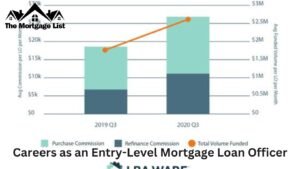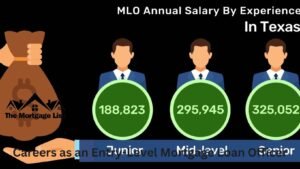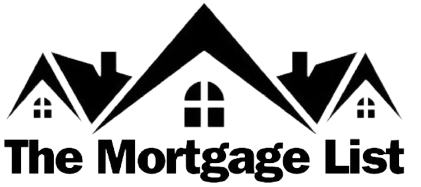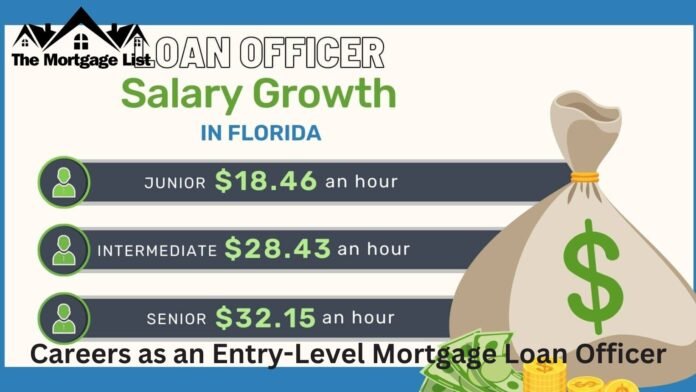Table of Contents
ToggleCareers as an Entry-Level Mortgage Loan Officer
In today’s competitive job market, many individuals are exploring opportunities in the financial sector, particularly in roles related to mortgage lending. One such career path that holds promise for entry-level professionals is that of a mortgage loan officer. This article aims to provide a comprehensive overview of careers as an entry-level mortgage loan officer, including qualifications, responsibilities, salary expectations, advancement opportunities, and more.
1. Introduction to Mortgage Loan Officer Careers
What is a mortgage loan officer?
A mortgage loan officer is a financial professional who assists clients in securing mortgage loans to purchase real estate properties. They act as intermediaries between borrowers and lenders, helping clients navigate the complex process of obtaining a mortgage.
Importance of entry-level positions
Entry-level positions in mortgage lending provide individuals with valuable experience and exposure to the industry. They serve as a stepping stone for aspiring professionals looking to build a successful career in finance.
2. Qualifications and Skills Required
Education requirements
Most entry-level mortgage loan officer positions require a bachelor’s degree in finance, business administration, economics, or a related field. Some employers may also consider candidates with relevant work experience or vocational training.
Necessary skills and qualities
Successful mortgage loan officers possess excellent communication skills, attention to detail, and a strong aptitude for numbers. They must also demonstrate integrity, professionalism, and the ability to work well under pressure.
3. Understanding the Role
Responsibilities of a mortgage loan officer
Mortgage loan officers are responsible for evaluating loan applications, gathering necessary documentation, and guiding clients through the loan approval process. They also educate borrowers about available loan options and assist them in selecting the most suitable mortgage products.

Daily tasks and duties
On a typical day, mortgage loan officers may meet with clients to discuss their financial needs, review loan applications, and communicate with lenders to negotiate loan terms. They also spend time networking with real estate agents, builders, and other industry professionals to generate leads and referrals.
4. Training and Certification
Importance of training programs
Many mortgage lending companies offer training programs for entry-level loan officers to learn the ropes of the industry. These programs typically cover topics such as loan origination, underwriting guidelines, and regulatory compliance.
Licensing and certification requirements
In addition to on-the-job training, mortgage loan officers must obtain state licensure and may choose to pursue professional certifications such as the Mortgage Loan Originator (MLO) license or the Certified Mortgage Planning Specialist (CMPS) designation.
5. Job Outlook and Growth Potential
Current market trends
The demand for mortgage loans is influenced by factors such as interest rates, housing market conditions, and economic trends. Despite occasional fluctuations, the overall outlook for mortgage lending remains positive.
Projected growth in the industry
According to the Bureau of Labor Statistics, employment of loan officers, including mortgage loan officers, is projected to grow by 8% from 2020 to 2030, driven by the need for mortgage financing and refinancing services.
6. Salary Expectations
Average salary for entry-level positions
Entry-level mortgage loan officers can expect to earn a competitive salary, with median annual earnings ranging from $40,000 to $60,000, depending on factors such as location, experience, and employer.
Factors influencing salary variations
Salary variations in the mortgage industry may be influenced by market demand, commission structures, and performance incentives. Experienced loan officers with a proven track record of success may command higher salaries and bonuses.
7. Advancement Opportunities
Career progression paths
Entry-level mortgage loan officers have ample opportunities for advancement within the industry. With experience and additional training, they may advance to senior loan officer roles, branch management positions, or even executive leadership roles.
Opportunities for growth and development
Continuing education and professional development are key components of career advancement in mortgage lending. Many employers offer tuition reimbursement programs and encourage employees to pursue advanced degrees or certifications.

8. Challenges and Rewards
Common challenges faced by entry-level mortgage loan officers
Entry-level mortgage loan officers may encounter challenges such as meeting sales targets, navigating complex loan scenarios, and adapting to changing regulatory requirements.
Rewards and satisfaction in the profession
Despite the challenges, many mortgage loan officers find fulfillment in helping clients achieve their homeownership dreams. The sense of accomplishment that comes from assisting clients through the loan process can be highly rewarding.
9. Tips for Success
Advice for aspiring mortgage loan officers
- Develop strong interpersonal skills and build relationships with clients and industry contacts.
- Stay informed about changes in mortgage regulations and market trends.
- Focus on providing exceptional customer service and meeting clients’ needs.
Strategies for career advancement
- Seek opportunities for mentorship and professional development.
- Set ambitious goals for career growth and take proactive steps to achieve them.
- Network with colleagues and industry professionals to expand your professional circle.
10. Industry Trends and Innovations
Technological advancements impacting the industry
The mortgage lending industry is evolving rapidly, with advancements in technology transforming the way loans are originated, processed, and serviced. Tools such as automated underwriting systems and digital mortgage platforms are streamlining the lending process and enhancing efficiency.
Emerging trends shaping the future of mortgage lending
Trends such as remote online notarization, artificial intelligence, and blockchain technology are poised to revolutionize the mortgage lending landscape, making it imperative for mortgage loan officers to stay abreast of these developments to remain competitive in the field.
11. Networking and Building Relationships
Importance of networking in the field
Networking plays a crucial role in the success of mortgage loan officers. Building and maintaining relationships with real estate agents, builders, attorneys, and other industry professionals can lead to valuable referrals and business opportunities.
How to cultivate professional relationships
Attend industry events, join professional associations, and engage with peers on social media platforms to expand your network. Be proactive in reaching out to potential referral sources and nurture relationships through regular communication and follow-up.
12. Work-Life Balance
Managing workload and stress
The demanding nature of the mortgage lending profession can sometimes lead to burnout if not managed effectively. It’s essential for mortgage loan officers to prioritize self-care, set boundaries, and find ways to decompress outside of work.
Strategies for maintaining a healthy work-life balance
Create a schedule that permits certain times for work, family, and pleasure. When faced with an overwhelming workload, assign responsibilities to others when you can, learn time management skills, and don’t be afraid to ask for help from mentors or coworkers.
13. Diversity and Inclusion in the Workplace
Importance of diversity in the mortgage industry
A successful company culture must prioritize diversity and inclusion. In addition to encouraging innovation and creativity, embracing variety makes sure that the demands of a varied clientele are successfully satisfied.
Initiatives promoting inclusivity and equality
Many mortgage companies are implementing initiatives to promote diversity and inclusion, such as diversity training programs, mentorship opportunities for underrepresented groups, and outreach efforts aimed at recruiting a diverse workforce.
14. Ethical Considerations
Upholding ethical standards in mortgage lending
Maintaining the highest ethical standards is paramount for mortgage loan officers. Adhering to regulations, disclosing information accurately, and acting in the best interests of clients are foundational principles of ethical conduct.
Dealing with ethical dilemmas in the profession
Mortgage loan officers may encounter ethical dilemmas in their day-to-day work, such as conflicts of interest or pressure to approve questionable loans. It’s crucial to approach these situations with integrity, seeking guidance from supervisors or compliance officers when necessary.

15. Conclusion
In conclusion, careers as entry-level mortgage loan officers offer promising opportunities for individuals interested in the dynamic field of finance. By acquiring the necessary qualifications, developing essential skills, and embracing ongoing learning and professional development, aspiring mortgage loan officers can build rewarding careers with ample room for growth and advancement.
FAQs (Frequently Asked Questions)
- What credentials are required to work as a mortgage loan officer?
- Generally, a bachelor’s degree in finance or a related field is preferred, along with strong communication and analytical skills.
- How much can I expect to earn as an entry-level mortgage loan officer?
- Entry-level salaries typically range from $40,000 to $60,000 annually, but may vary based on factors such as location and employer.
- What are some challenges faced by mortgage loan officers?
- Challenges may include meeting sales targets, navigating regulatory changes, and managing workload effectively.
- Are there opportunities for career advancement in mortgage lending?
- Yes, with experience and additional training, mortgage loan officers can advance to senior roles or pursue leadership positions within the industry.
- How can I keep up with innovations and trends in the industry?
- Networking with peers, attending industry events, and engaging in ongoing professional development are effective ways to stay informed and competitive in the field.
Read More:>

